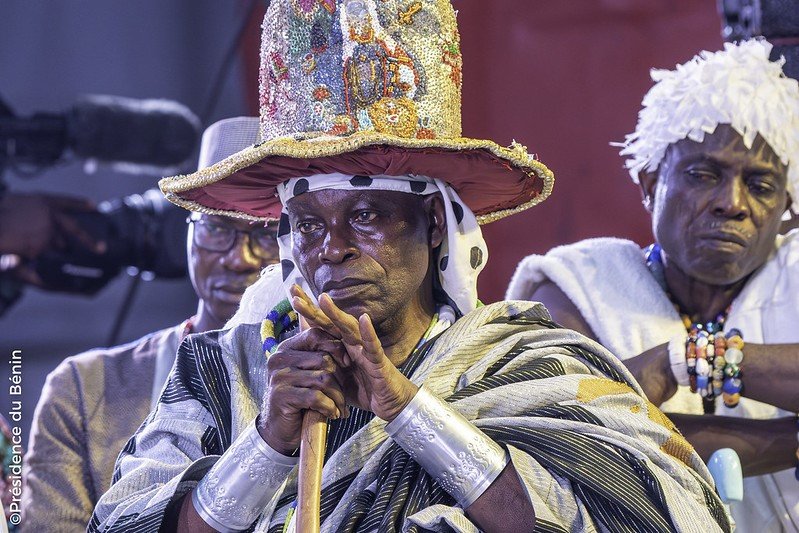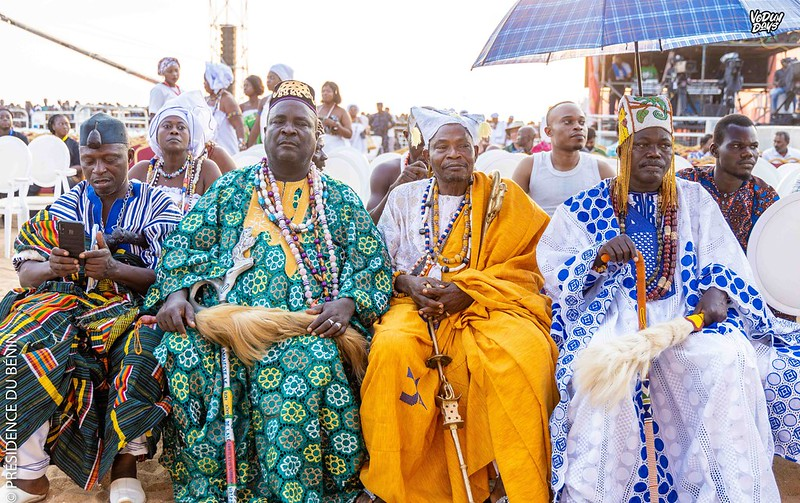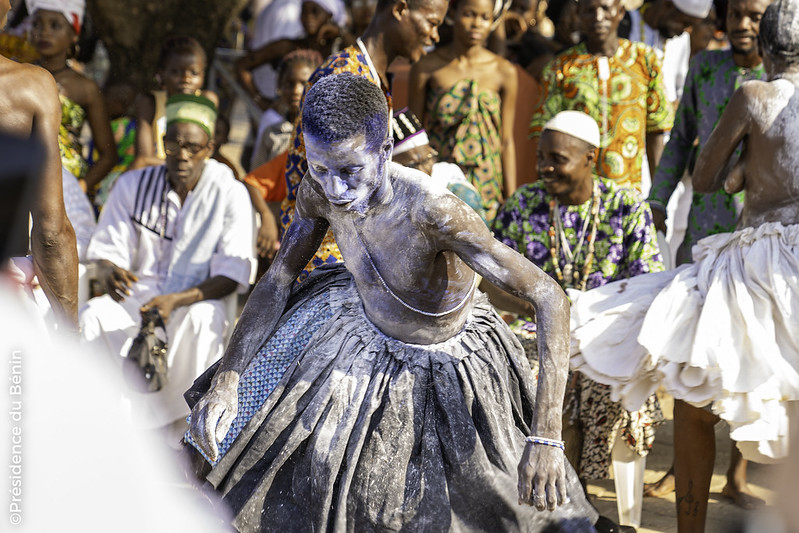(Origin of Vodun, apprehension of scientists and followers)

The African continent is endowed with a diversity of cultures and divinities which has allowed it to establish a great knowledge of endogenous knowledge for its development. In Benin particularly, the country has highlighted Vodun as a tourist element that can enable it to reach a remarkable level on several levels. This is also one of the reasons why the government of President Patrice Talon, upon coming to power, issued several decrees which promote Beninese culture, notably Vodun days, including cultural classes, and the repatriation of goods. cultural areas, the promotion of Beninese cultural areas and others. An exciting world that attracts a host of international tourists. These visitors come during the holidays with their families to experience the religious and cultural realities of Benin.
SOME KNOWLEDGE ABOUT THE VODUN PANTHEON

According to Raymond C. ASSOGBA, Dr Raymond Coovi ASSOGBA, Lecturer at CAMES Universities, Sociologist and Boologist at the University of Abomey-Calavi, Vodun has a more articulated meaning through very inspiring defragmentation. There is “vo” and “doun”. According to the story, there are two twins who went in search of knowledge, that is, they went to a river to draw water. Arriving there at night, they found an old lady guarding the well and whose hair extended beyond her pelvis. They wanted to draw quickly and leave. The lady turns around and tells them “mi vo bo doun”. Which means that it is with patience that we accumulate knowledge, which emphasizes wisdom. Vodun in fact is the wisdom of our ancestors. Better, for us in boology (science of fâ vodoun bo), adds Dr Raymond ASSOGBA, we have torn vodun from the sphere of religion. Boology considers vodun as a thought; therefore falling under the scope of scientific research, he concludes.

For the priest of the fâ, Boconon Aidjo of the royal and historic city of Abomey, vodun has a deep meaning especially in the Fon environment where he chose to make his explanations. The name “vodun” given to a deity denotes a transcendent spiritual being, that is, a supreme divine quality like “SEGBOLISSA” “MAHU” “ORISHA”.
The term “vodun” = “vo” aqueous space and “doun” to draw, translated according to the creative act which consisted of drying up the marshy waters, called original waters or primordial ocean, to bring out the first lands of creation. Vodun therefore evokes a cosmological narrative. A vodun divinity designates a universal principle which manifests itself through a natural phenomenon. The cult rendered to a vodun god thus consists of appropriating the determinism underlying the phenomenon, in a technique of grasping and mastering the laws which govern the facts in their manifestations, explained the priest of Fâ. It is therefore knowledge relating to universal laws and their applications in man and in nature. It constitutes, according to the followers, a monotheism which is apparently expressed by a symbolic polytheism. It is not a question of a religion, as the late Honorat Aguessy, a professor of sociology and anthropology, who defined vodun as a source of “imploration, resignation and command,” clearly demonstrated. Vodun is a practice that one must believe to understand and understand to believe. The “vodounon”, master of the creative act, and the “bokonon”, master of living speech, appear as scholars and wise men of their society.

A vodun entity is also called “houn”. Which literally means the heart or what escapes the head, that is to say reason. From here derives the word “hou-non” literally meaning master of mystery. By virtue of the mysterious character of vodun, we name thus by comparison, everything which seems unknowable, inconceivable and elusive. Otherwise, what is beyond human understanding. For example in Africa, the birth of twins, albinos, etc.) constitute mysteries that vodun explores. Consequently, over time, many vodun were added to what actually constituted the Pantheon of vodun deities and therefore made their study more and more difficult. All the writings relating to the Vodun Pantheon have also recognized the diversity of their origins and the migrations from one region to another. This difficulty, however, is only apparent, to the extent that it can be resolved by taking into account the laws of similarities found in all theologies. By following this method, we can discern a vodun in the sense of divinity from another which is not.

Furthermore, the vodun pantheon can only be penetrated in depth if it is studied in relation to the theology (or mythology) of ancient Greece and ancient Egypt. Moreover, these theologies illuminate each other. Vodun in the beginning was linked to the mysteries of the universe. It relates to the primordial principle, God, in its manifestations. The vodun represent universal principles and are, therefore, deities.
There is another category of vodun that is interesting to us: these are the Ancestors deified because of the exceptional life filled with wisdom and virtue, which they led on earth like some of our kings, namely: Béhanzin, Bio Guerra, Kaba, the 4th from Dassa-Zoumè. In this regard, tradition believes that they still live in the region of the divinities. They are rightly assimilated to deities and worshiped as such. This fact is also observed with saints in other religions.
We can thus identify three classes of vodun entities: the talisman vodun, the deity vodun and the revered ancestor vodun on which we are offering you relevant articles very soon with the aim of giving you the taste to healthily visit Benin which is a flagship tourist destination in West Africa.
Oscar S, MEDO-ADOKON
